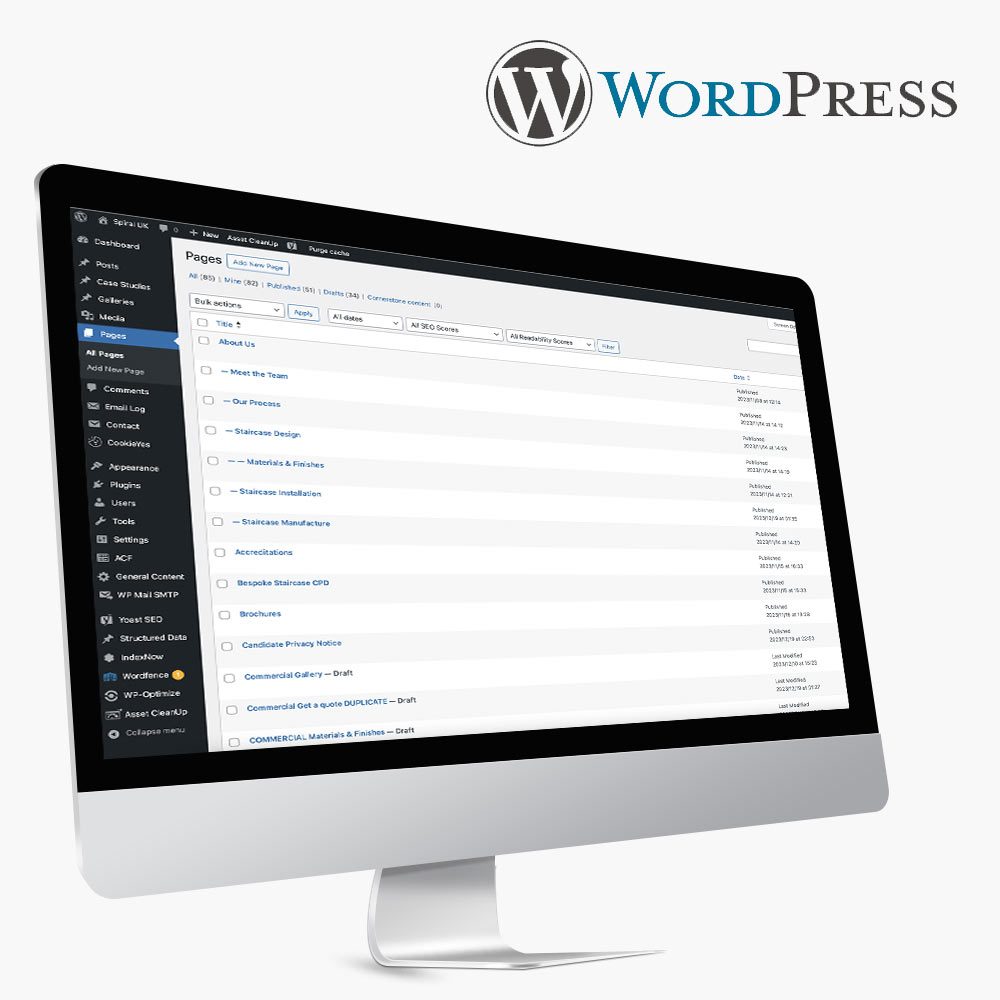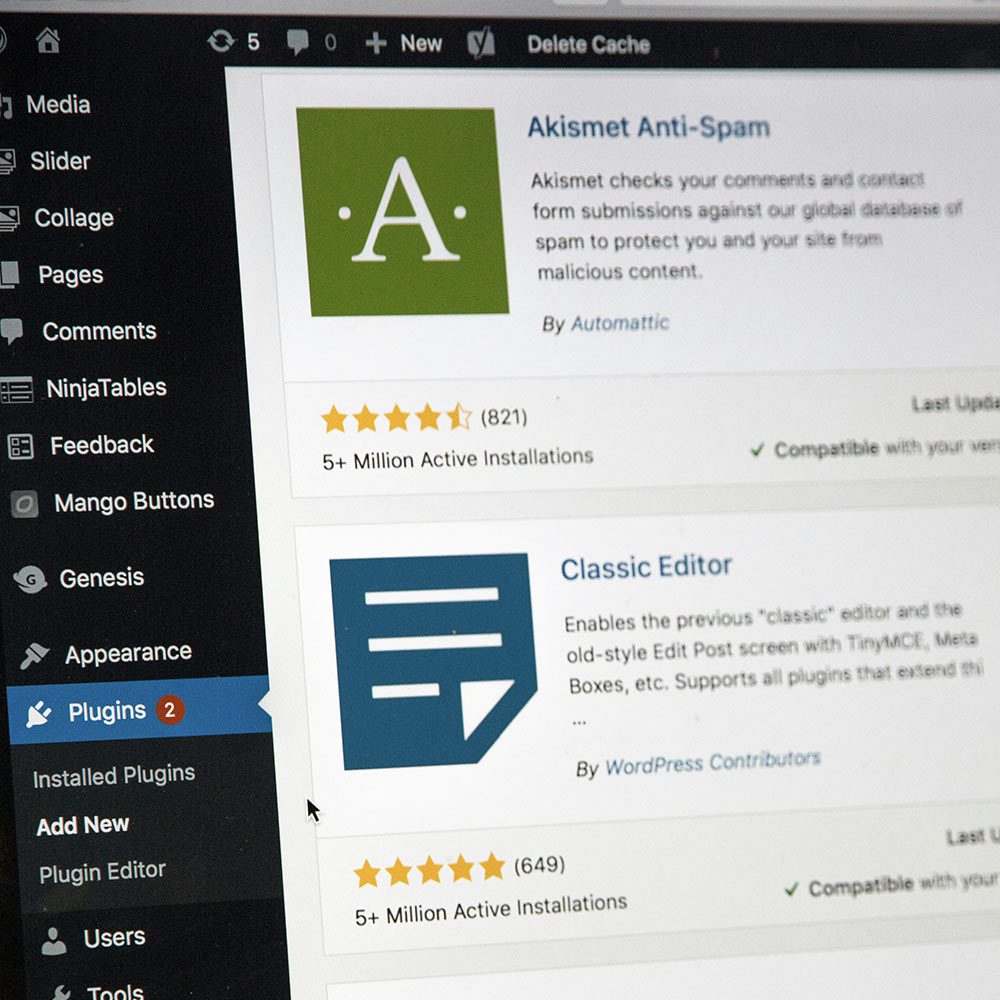A Content Management System (CMS) is a software application that enables users to create, manage, and modify digital content without requiring specialised technical knowledge. CMS platforms streamline the process of content creation, allowing users to focus on writing and designing rather than dealing with complex code. With a CMS, users can build websites, blogs, and online stores efficiently, with drag-and-drop functionality and user-friendly interfaces.

Over 65%
of all websites use a CMS
Over 43%
of all websites are powered by Wordpress
When selecting a CMS, it’s essential to consider its features. Here are some key functionalities that most CMS platforms offer:

Here are some frequently asked questions about Content Management Systems in Cornwall…
Content Management Systems play a vital role in the modern digital landscape, enabling individuals and businesses to create, manage, and optimize their online presence effectively. With numerous options available, organisations can select a CMS that fits their specific needs, balancing ease of use, customisation, and scalability. As technology continues to evolve, so too will the capabilities of CMS platforms, offering even greater flexibility and functionality for users around the world. Understanding these systems is essential for anyone looking to navigate the complexities of content management in today’s fast-paced environment.
What is a Content Management System (CMS)?
A Content Management System (CMS) is software that enables users to create, manage, and modify digital content on a website without needing specialised technical skills. It simplifies the process of building and maintaining a website.
What are the benefits of using a CMS?
The benefits of using a CMS include:
Can I use a CMS for e-commerce?
Yes, many CMS platforms are specifically designed for e-commerce, offering features like product management, payment processing, and customer relationship management. Popular e-commerce CMS options include WooCommerce (for WordPress), Shopify, and Magento.
Is it necessary to have technical skills to use a CMS?
No, most modern CMS platforms are designed to be user-friendly, allowing non-technical users to create and manage content easily. However, some advanced customisation may require basic knowledge of HTML, CSS, or other programming languages.